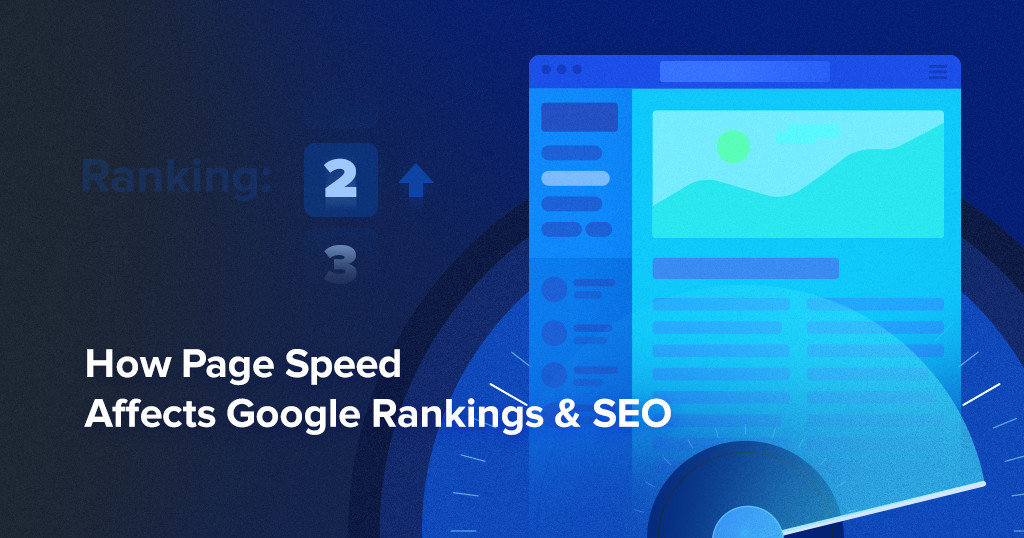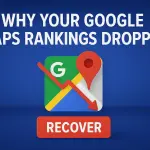
Table of contents [Show]
Your website is like a storefront. If the doors don't open quickly, visitors won’t wait—they’ll leave. Similarly, when your website loads slowly, you risk losing customers, harming your search engine ranking, and driving down revenue.
This is where Goal Conversion and local SEO services come in, especially if you’re looking for local SEO services in Calgary to fine-tune your online performance.
Here’s why a slow website isn’t just annoying—it’s costly. And with speed being a critical factor in search engine ranking optimization in Calgary, businesses need to step up their game.
Why Google Cares About Speed?
Google, the ultimate referee of the internet, has been upfront: website speed matters. In fact, Google explicitly stated in 2010 that page speed is a ranking factor. But since then, the stakes have risen dramatically.
Recent stats reveal:
- 53% of users leave a website if it takes longer than 3 seconds to load.
- For every second of delay, conversions drop by 7%.
- A 2-second load time is the threshold for top-ranking e-commerce websites.
These stats paint a clear picture. Faster sites deliver better user experiences, which means higher engagement, lower bounce rates, and ultimately better rankings.
To stay competitive, you need expert help from an internet marketing company in Calgary to optimize your site for speed and conversions.
How Slow Speeds Kill Your Rankings?
1. High Bounce Rates
Imagine you click on a website link, and nothing happens. After waiting 4 seconds, you hit the back button.
This is exactly what happens with slow-loading sites. Google measures bounce rates (how quickly people leave your site), and high rates send a red flag to the algorithm. A slow site tells Google your content isn’t worth sticking around for, lowering your rankings.
2. Reduced Crawl Efficiency
Website speed doesn’t just affect visitors; it impacts search engines too. When Google crawls your site, a slow server response wastes its time. This results in fewer pages being indexed, which means your content isn’t fully available in search results.
As SEO consultant Neil Patel explains:
“If Google can't crawl your website effectively, your ranking potential drops significantly.”
3. Poor Mobile Experience
With mobile searches accounting for over 63% of all Google searches (source: SEMrush), a site that isn’t mobile-friendly and fast is doomed. Slow load speeds on mobile devices lead to frustrated users, lower rankings, and lost customers.
The Emotional Toll of Waiting
Let’s face it: people today have the patience of a hummingbird. A study by BrowserStack showed that:
- 40% of visitors abandon a website if it takes over 4 seconds to load.
- 80% of those visitors won’t come back.
As one Reddit user put it:
“Waiting for a slow website feels like being stuck behind someone paying with pennies at a checkout.”
If your site makes users feel this way, you’re losing their trust—and business.
What Can You Do to Improve Website Speed?
To prevent slow speeds from dragging down your rankings, you need to take proactive steps. Here are a few game-changing strategies:
1. Optimize Your Images
Large image files are a top culprit for slow sites. Compress your images without sacrificing quality. Tools like TinyPNG can help.
2. Use a Content Delivery Network (CDN)
A CDN stores copies of your website on servers around the world. When someone visits your site, the server closest to them delivers the content, reducing load times.
3. Leverage Browser Caching
Caching saves a copy of your website on a user’s browser, so when they visit again, it loads almost instantly.
4. Invest in Quality Hosting
Cheap hosting often means shared servers, leading to slower speeds. Premium hosting services ensure your site runs smoothly and quickly.
5. Hire Professionals
Getting help from an internet marketing company in Calgary ensures your site is optimized for speed and SEO success.
FAQs
1. Why is website speed a ranking factor?
Google prioritizes user experience, and fast websites keep users engaged longer. This leads to better SEO performance.
2. What’s the ideal website load time?
Our experts recommend under 2 seconds. Anything above 3 seconds risks high bounce rates and lower rankings.
3. How can I check my site’s speed?
You can use Google Page Speed Insights, GTmetrix, or Pingdom to analyze your site’s performance.
4. Does website speed affect mobile rankings too?
Absolutely. With Google’s mobile-first indexing, slow mobile sites can tank your rankings.
5. Can local SEO help with website speed?
Yes! We offer local SEO services including speed optimization to improve overall performance.
Conclusion
Website speed isn’t just a technical issue—it’s a make-or-break factor for your online success. If your site is slow, you’re losing traffic, conversions, and rankings. But with the right strategies, you can turn things around.
Collaborating with Goal Conversion, specializing in local SEO services in Calgary, can ensure your site is fast, user-friendly, and primed for success.
Don’t let slow speeds keep you in the slow lane. Invest in speed optimization today and watch your rankings—and revenue—grow.










